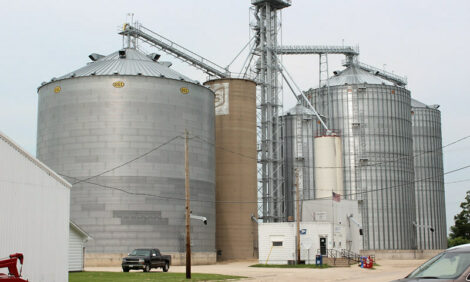



Wet Weather Produces Unique Greenhouse Gas Emission Research Results
CANADA - Farm-Scape: Episode 1614. Farm-Scape is a Wonderworks Canada production and is distributed courtesy of Manitoba Pork Council and Sask Pork.Farm-Scape, Episode 1614
Research being conducted by the University of Manitoba shows the emission of the various greenhouse gases from agricultural soils will vary considerably from year to year...depending entirely on the weather.
As part of a multi-disciplinary study, scientists at the University of Manitoba are evaluating the value of using hog manure fertilizer to improve forage quality as a means of reducing greenhouse gas emissions.
The research is being conducted on forage land south of La Broquerie and got underway last fall with the first applications of liquid swine manure.
Soil Microbiologist Dr. Mario Tenuta says the depth of the water table and the soil texture across the field are highly variable so this year's extremely wet weather has produced some interesting preliminary findings.
"Our plots are quite large in order to represent almost commercial scale operations and we're finding there's actually been great variability in soil.
One section of a field can be quite wet but another section can be quite dry and the reason for that would be the placement of the water table.
Then also, the texture of the soil is quite sandy and gravelly which means it really drains very well.
Where there's wet conditions, the behavior of these greenhouse gases and how they're emitted or released from soil is quite different than those dry areas.
Where the water table is close to the surface we've been finding that methane is being produced and in other areas, not so close to the surface and on gravelly and well drained, we're finding that there's nitrous oxide that is being produced.
It's interesting that we're going to find that, from year to year the differences in our results from a nutrient cycling and greenhouse gases standpoint, are going to be completely weather dependent."
Dr. Tenuta says this year will not be typical, in terms of findings related to greenhouse gas production, but will provide instead an indication of what can be expected during a very wet extreme.
For Farmscape.Ca, I'm Bruce Cochrane.








